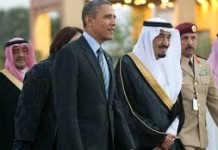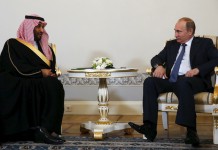.jpg) The Indian cities of Delhi, Kolkata and Mumbai have been placed on high alert for the second time in only a month. India has claimed that the Taliban “Pashtun-looking” suicide bombers have penetrated these cities and are looking to target vital installations.
The Indian cities of Delhi, Kolkata and Mumbai have been placed on high alert for the second time in only a month. India has claimed that the Taliban “Pashtun-looking” suicide bombers have penetrated these cities and are looking to target vital installations.
In this article we explore the regional implications of a potential Taliban attack on the country. Is India fear mongering or is the history really about to repeat itself, in the form of Central Asian invaders?
Analysis
 With the surge of US troops in Afghanistan as part of the nation’s new strategy, what will be the ramifications of another attack in India planned allegedly by the Pakistani Taliban (TTP) – especially in the wake of the Mumbai attack blamed on Lashkare Tayiba (LeT)? The investigation of the incident has lead to two LeT linked men – David Headley and Tahawwur Hussain Rana, of Pakistani origins and carrying American and Canadian citizenships, respectively. They were also accused of planning future attacks on India so as to distract the attention of the Pakistani Army from its Western border and shift it towards its eastern flank. Furthermore, these individuals were also planning attacks in Denmark. From the investigation one can easily deduce that Kashmir-related jihadi organizations such as the LeT and JuD (Jamat-ud-Dawah), like Al Qaeda, now have a global agenda.
With the surge of US troops in Afghanistan as part of the nation’s new strategy, what will be the ramifications of another attack in India planned allegedly by the Pakistani Taliban (TTP) – especially in the wake of the Mumbai attack blamed on Lashkare Tayiba (LeT)? The investigation of the incident has lead to two LeT linked men – David Headley and Tahawwur Hussain Rana, of Pakistani origins and carrying American and Canadian citizenships, respectively. They were also accused of planning future attacks on India so as to distract the attention of the Pakistani Army from its Western border and shift it towards its eastern flank. Furthermore, these individuals were also planning attacks in Denmark. From the investigation one can easily deduce that Kashmir-related jihadi organizations such as the LeT and JuD (Jamat-ud-Dawah), like Al Qaeda, now have a global agenda.
In its November 2009 Forecast, PoliTact noted that the US has now increased pressure on the Pakistan Army to take on the Afghan Taliban, just as it asked the Pakistanis to extend their operations from Swat to Waziristan. The US has made it clear that if Pakistan don’t comply with its wishes, it will take the situation into it own hands and extend the drone attacks and target the Quetta Shura Council (widely believed to be operating out of Baluchistan). Pakistan has responded that it intends to carry out its own war against extremists, based on its own priorities and using its own strategy. We believe that Pakistan, largely as a result of the the Mumbai incident investigations, will be forced to tackle the Kashmir- related jihadists as well.
We are also convinced that events of next year will further prove to the Pakistani Government that the Afghan Taliban and Kashmir-related jihadists, like the TTP, are in bed with Al Qaeda and a threat to Pakistan. The timing of these events will be connected to Pakistan’s performance against the extremists and the status of US surge in Afghanistan. If it seems that Pakistan has been able to control its domestic situation and has entered into some kind of peace agreement with Taliban, while US surge in Afghanistan appears to be not going well, this will be the most likely time for an attack to occur in India.
In this context, the Indian is going to play a key role; if Pakistan fails to act against the perpetrators, India will be prepared for a limited war. This is line with recent remarks by the Indian Army Chief General Deepak Kapoor on the possibility of a limited war with Pakistan, the so-called “Cold Start” strategy. In the course of addressing a seminar in New Delhi entitled, “Changing Nature of Conflict: Trends and Responses,” he stated:
“The possibility of a limited war under a nuclear overhang is still a reality, at least in the Indian Subcontinent. Along with West Asia, South Asia has gradually emerged as one of the epicenters of conflict and instability.”
Furthermore, this month’s first-ever official visit to India by the Israeli Defense Forces (IDF) Chief of General Staff, Gabi Ashkenazi, will not pass unnoticed in Islamabad, especially as his visit follows on the heels of General Deepak’s trip to Israel in November. Major General Avi Mizrahi, Israel’s Army Chief, was also reported to have secretly visited Kashmir in late 2008.
According to other media reports, Israel overtook Russia last year as the number one supplier of military equipment to India, which is keenly interested in jointly working with Israel on submarine-launched cruise missiles, ballistic missile defense and laser-guided systems, satellites and unmanned aerial vehicles (both surveillance and reconnaissance). Israel is also training Indian troops in counterinsurgency and anti-terrorist operations.
All of this helps account for Pakistan’s suspicions of a conspiracy between India, Israel and the US to destabilize Pakistan. The latter has recently blamed India for a hand in the troubles it faces in FATA and Baluchistan. And although India says that it will prove its good will by withdrawing 30,000 of its troops from the Kashmir region, it remains unclear whether it is sincerely interested in resolving its dispute with Pakistan.
Conclusion

Thus, any future attack(s) on India could have serious regional ramifications, especially for Pakistan; in such a situation, India will be hard pressed to respond forcefully, provoking a vigorous blowback from Pakistan. India has shown restraint in three high profile attacks; Kargil (1999), attack on its Parliament (2001) and Mumbai incident (2008.) It is highly unlikely that India can be deterred next time. India’s new ‘Cold Start’ strategy envisions quick mobilization of its forces to fight at two fronts, with China and Pakistan.
Buying time helps Pakistan regarding Afghanistan calculus, but not with the Kashmir dispute. Although the senior Indian leadership has made a number of recent statements to the effect that it doesn’t desire an unstable Pakistan, it has dragged its feet when it comes to the composite dialogue process.
It is obvious that from the Indian perspective, a stable but subdued Pakistan will not only help India solve the Kashmir dispute its way, but also in countering Chinese influence in the region. India’s current policy is premised on gaining the moral high ground in the eyes of the world and regional and global events linked to the war on terror seem to be helping it achieve its goal. For Pakistan this would mean ultimately having to confront TTP, Afghan Taliban and Kashmir related Jihadist all at once, under mounting international pressure.
Therefore, India believes it does not gain from speeding-up the dialog process at the present time. There is a connection between the swiftness of India towards the dialogue process with Pakistan, and the pace of Pakistan’s actions against Taliban and Jihadist, with US playing a balancing role. However, if India’s Maoist insurgency keeps getting worse and disillusionment of its Muslim population keeps increasing, delaying the resolution of Kashmir dispute could prove to be a costly mistake. Furthermore, if situation in Iran, Afghanistan and Pakistan continues to deteriorate, India with its large Muslim population will also follow.
Both countries’ thought leaders continue to perceive the Indo-Pak relationship in a zero cum context – one that they believe has deep historical roots. This attitude can only make matters worse. Unless India and Pakistan can make a fresh start, a clear winner in the Subcontinent is unlikely to emerge. Tactical moves will only produce short-term gains, other actors will seize opportunities for exploitation and history will repeat itself in the region.
Tell Us What You Think



